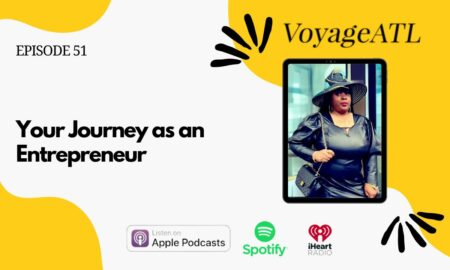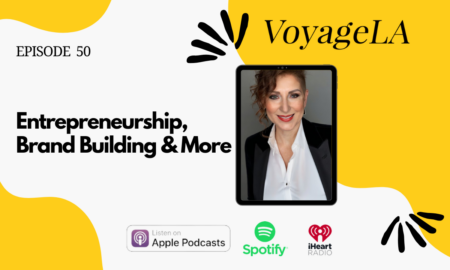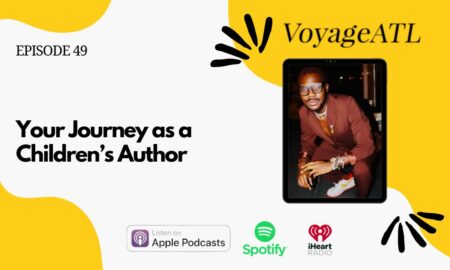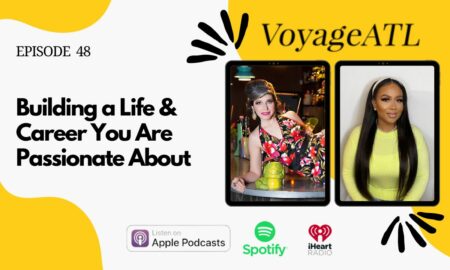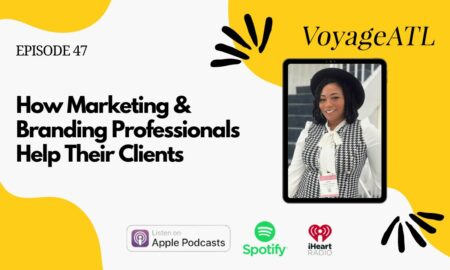
Today we’d like to introduce you to Vipul Kapadia.
Vips, let’s start with your story. We’d love to hear how you got started and how the journey has been so far.
I guess from my accent I’m pretty obviously a Brit, a Londoner for most of my life. My family is originally from India, and my sisters were all born in Kenya prior to coming to London, where I was born. It was a modest upbringing in a reasonably rough inner city part of town – we didn’t have much, but our family was very close. Doing well in school was pretty much everything for me at that stage. But it was fun too! In fact I met my wife, Carla in school when we were just 11. In retrospect, growing together has been wonderful and stabilizing for me.
I was lucky enough to get into The London School of Economics, where I graduated with a major in Government – right at the intersection of Economics, Government and Philosophy. It’s funny – it didn’t seem so ‘functional’ at the time like Computer Science, Medicine or Business but it sure seems to be relevant now – a few years down the road.
After traveling around Europe for a while, I ended up joining a Tech company. Think of it like a pre-Dell type company called Carrera Technology. I started in technical support, shifted to Sales Assistant and then ultimately product development. It was a fun experience and the company grew to about 100 people (I joined at 14 I think).
Then, an out of the blue conversation resulted in me joining Andersen. This was prior to the split with what is now Accenture. Initially, I joined the Advanced Tech group essentially as a Solution Architect and a not so good developer. However, over the next six years, I built my consulting muscle on technology transformation – large Fortune 1000 clients, and was lucky enough to get opportunities to work in tech, business process re-engineering, corporate strategy and Leadership, and People. Every time recognizing that each of these areas were universes of really important skills that I had previously been blissfully unaware of while I had been living in ‘my bubble’.
After Andersen collapsed, we found ourselves at Deloitte. One year in, my mentor asked if I wanted to be part of the founding team for our own company. 3 of us started our own consulting company focused on being the friend of the transformational CIO – Qedis. In addition to client work, I was always the ‘people guy’ – a bit like the custodian, the ‘soul’ or ‘purpose’ of our business, in addition to just doing my job. The weight of being a founding member was hard on me as we grew aggressively. I have a tendency to push through stress, until my body sends me a message. I got pretty sick, and this was a wake up call for me to re-evaluate my priorities and my personal definition of success.
Qedis, which was based in London, grew to a few hundred people, at which point we were introduced to an ATL based company – North Highland. I came over to ATL to stand up a joint venture – a bit like a United Nations of like-minded national consulting companies. It was during this period – 2006-2008, that I got my first taste of Atlanta. Everything about that time was a phenomenal learning experience and pretty successful too. In this period I also became a dad, and although it was time for us to go back to London, Atlanta occupied a very warm place in our hearts.
The positive relationship with North Highland ultimately resulted in Qedis being acquired a few years later, and I came back to Atlanta as part of that acquisition. So for me, that was the end of a cycle. Starting something, developing it, growing it, it being sold and it being integrated.
A few years later I left, and took a year out to decide what I wanted to do, and ended up contacting many business transformation clients that I had acquired over the 20 years of my working life, and asking them how successful their initiatives had been with the benefit of hindsight. During this process, three insights hit home:
Firstly, it’s hard. In my sample, only 5 out of the 20 had realized the benefits they had hoped for when they had undertaken them. It turns out that’s actually pretty good.
Secondly, the key differentiator with those that had succeeded was, that the leaders at all levels had been willing and able to cognitively shift their own paradigms of success to the point that it was evident in their day-to-day behaviors and operational processes, which were being positively role-modeled in their organizations. This is rare, because people are habitual, and hence tend to do again what worked before – we call that experience! Without this, no matter how much money, tech or process is thrown at it, transformation is doomed to fail. Therefore successful transformation, requires rewiring your brain. Literally.
Finally, it seems there are many executives (people who are good at creating and running and operating things), but few leaders (people who others want to follow on the basis of their motivating purpose). Often the leaders aren’t in the C-Suite or even in the Director/VP ranks – they are everywhere. It’s these people that are critical to successful transformations.
Around the same time I lost my mother to breast cancer. Her final gift to me was a desire that I go to India, to find some peace. I am grateful that through this experience, I got to discover my sense of meaningful purpose, that now drives every aspect of my life – To help seven fabulous people each year to inspire, innovate and orchestrate extraordinary impact in the world.
So, to cut a long story short, this resulted in Thinqshift being born. I took inspiration and insights from neuroscience with the aim of coaching leaders in ambiguous and volatile situations.
Has it been a smooth road?
I certainly wouldn’t say that! I think it’s the bumps and potholes on the road that test us and that we learn from. Here’s my top 10:
1. Measuring myself against other people’s superpowers. Big mistake. It damaged my self-esteem and stopped me from seeing my worth and what I could bring.
2. I mentioned earlier I got sick – I’m convinced that’s because I wasn’t able or willing to develop stress management skills. In my mind, it resulted in terrible migraines and a brain tumor. It’s good to get a wake up call and create some real perspective.
3. Being thrown into the deep end. Time and time and time again. And learning to embrace it. I used to hate being thrown in at the deep end. But now, life is not interesting without a challenge. I learned it’s like a muscle you can build.
4. Taking a huge pay cut to start a business – twice. Once using my own money! Parents and friends thought I was insane the first time around. I think the world is full of ‘wantrepreneurs’ who when push comes to shove, can’t handle the financial risk, or emotional fear of failure.
5. Company culture tends to be a reflection of it’s leaders – positive and negative. As the steward of ‘soul’ for Qedis, it was tough after the acquisition as there were post-integration cultural issues that in some cases were because of my values and flaws. Until then, I never saw a strong culture as being a double edged sword.
6. Related to 5, dealing with the misaligned values and purpose following acquisition. I felt very guilty about the people I had recruited and toiled with. This was no one’s fault but my own but I learned viscerally how the most important decisions of our lives are rarely rational.
7. Feelings of letting down my parents and family. There was a lot of pressure for me to conform culturally as an Indian son. I was pretty headstrong, in terms of life decisions, and being amongst the first in our community to have an interracial marriage. It all worked out, but it taught me to question ingrained beliefs and to be willing to think differently.
8. Going from being an introverted, quiet person to a speaker for a living! I used to get the ‘I wish he would speak up’, or ‘be more confident’ comments! One day I challenged that self-belief and realized I was a pretty good speaker when I committed to it! Don’t let people tell you it’s who you are.
9. Recognizing that people need to move and managing their exit for them and the business. And then doing this in a highly ethical way. Sadly you have to do this enough times to build the muscle. I made some real screw ups along the way, but now almost invariably when I get into those sorts of conversations people are relieved and I often get a hug!
10. I used to push hard for promotion, pay rises and generally think I was better than a lot of people around me earlier in my career. Boy – was I wrong! I got burned a few times, and learned to realize that often the act of over-pushing was really providing the very data to prove I wasn’t ready. I was just too stupid to see it. Thank you to the bosses and mentors along the way who saw the potential and didn’t give up on me!
So, as you know, we’re impressed with ThinqShift – tell our readers more, for example, what you’re most proud of as a company and what sets you apart from others.
I’ve covered a lot of it above, because ThinqShift is really birthed with the idea of crafting Adaptable Leaders to inspire, innovate and orchestrate extraordinary impact in the world.
To nail down what we believe to be our top differentiators.
1. We are focused and pretty rigid about only working with “Fabulous People”. That’s our lingo for people who have the potential to be Adaptable Leaders that the future needs. This means for example, that we tend not to do ‘remediative’ coaching, but rather ‘how do I make great, truly exceptional and have them ShiftUp faster!’ We believe our neuroscience inspired ‘rewire’ coaching and ShiftUp Academy leadership programs work best for Fabulous People!
2. 50:50@50. Our goal is to spend 50% of our energy and resources in education and non-profit at a 50% reduction in price. I’m glad to say that we have been there or thereabouts since we started years ago.
3. Fab! We are proud to say we have the only personalized ongoing leadership performance acceleration subscription service for your Top 10% talent below VP. It exists because C-Suites are often frustrated with the pace of change; organizations often have poor people managers (who may be great engineers or experts); and HR and Talent functions find it hard to focus on the top 10% because quite rightly their mandate is to everybody. Fab! is therefore a long term partnership that meets a critical need to retain, nurture and create long term leadership sustainability.
Beyond that – you will get a great flavor of us from the videos on our website or ThinqShift YouTube channel.
Let’s touch on your thoughts about our city – what do you like the most and least?
Oh gosh! Where shall I start. Let me do a top 5, starting with what I love.
1. Weather (yes I don’t mind the heat). Apart from this year where the rain seems to be going on forever, I love the weather here. Remember, I’m from grey London so I’ll take the sun any day of the week.
2. Trees and open spaces. We have wonderful trees and enough open places within short drives, not to mention the wonderful Piedmont Park and Chattahoochee Reserve. Love it. – until I get bit by a swarm of renegade mosquitos.
3. On a slightly more serious note, I love that Atlanta is a bit of an oasis in the SE in terms of diversity and thought and creativity. Sure it doesn’t have the adrenaline of NYC or the Southern California laid-backness, but we are growing fast and in many ways attracting more talent too.
4. Warmth, manners, and hospitality. This gets me in trouble because I tend to be more direct so I probably unintentionally offend people who prefer indirect communication.
5. Travel hub. The airport and Delta. It’s a big deal! Especially as I travel quite a bit.
Oh.. how could I forget, I need to add ‘6’. ATL Utd! Shaky start this season but I guess we set the bar really high in 2018!
Moving on to to the dislike
1. Traffic (I guess you have to say that), although it’s still not as bad as some places I go to.
2. Relative lack of diversity at senior levels – all types of diversity. I know this isn’t just ATL, but I still think we can and will do better over time.
3. Relative lack of squares or walking areas to peruse small shops etc. Some nice areas in this respect in Decatur but just not a great place to explore small funky shops, and independent coffee shops.
4. Can’t think of any more..
Contact Info:
- Website: ThinqShift.com
- Email: info@thinqshift.com






Getting in touch: VoyageATL is built on recommendations from the community; it’s how we uncover hidden gems, so if you know someone who deserves recognition please let us know here.















